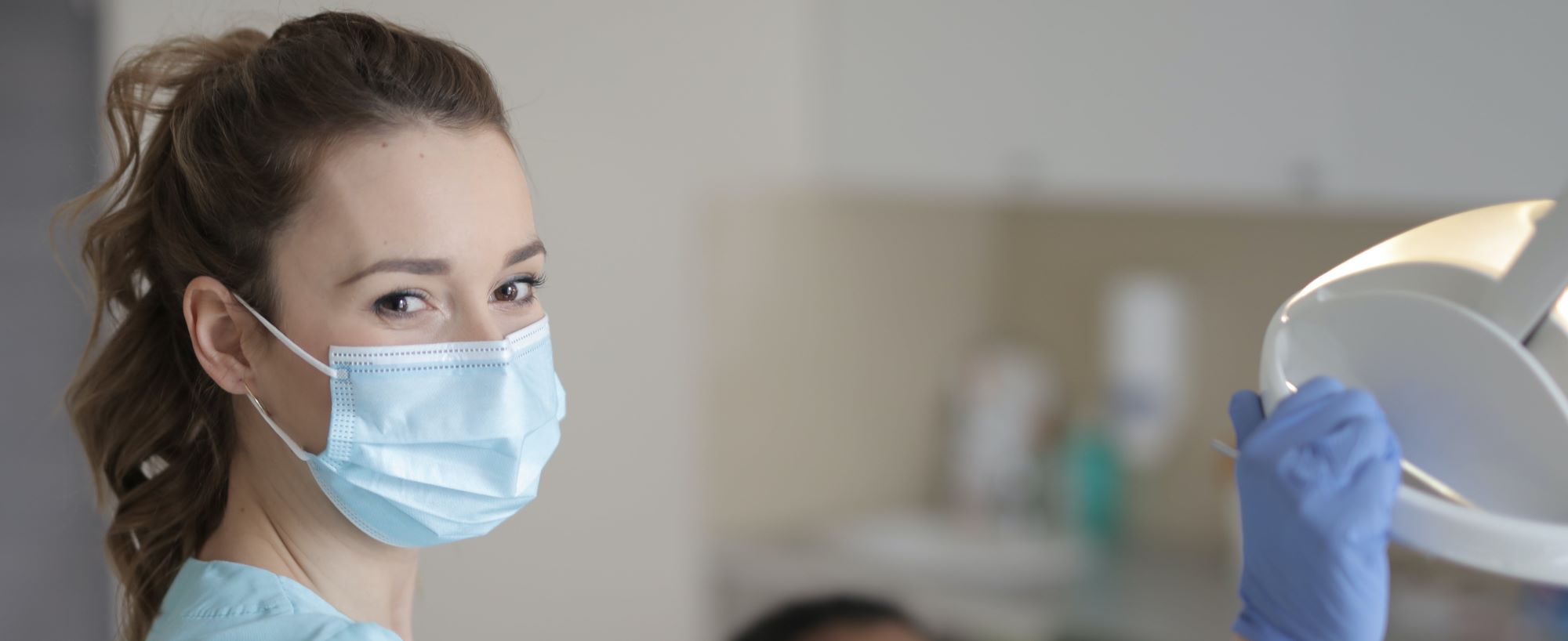
05 Mar What is a Dental Hygienist?
All across the country, every day of the work week, thousands of dental hygienists are the “unsung heroes” of their offices—cleaning patients’ teeth, taking x-rays, collecting information, and assisting the dentist around the office. Our goal today is to make them a little less unsung—to remind ourselves what dental hygienists do, what it takes to become one, and how we can show them that we’re grateful for the good care they take of us.
What do they do?
Your dentist could not do what they do without the help of their team, and the dental hygienists are some of the most vital players on that team. A dental hygienist is “an oral healthcare provider who offers teeth cleanings, preventive dental care and oral hygiene instruction.” You might be thinking, isn’t that exactly what a dentist does? It’s true—both are there to make sure you have healthy, strong teeth. But the dentist, with their increased schooling, is qualified to diagnose issues and perform treatments and operations, while the dental hygienist’s role revolves around less specialized tasks.
A day-in-the-life of a dental hygienist might vary slightly, depending on where and for whom they work. While the vast majority work in offices, there are some dental hygienists who work in schools, nursing homes, public health facilities, or hospitals. However, the essential function of a dental hygienist is to care for the oral health of the patients by performing cleanings and preventative care and otherwise assisting the dentist. Their responsibilities typically include:
Performing the dental cleaning.
It’s your dental hygienist who actually brushes and flosses your teeth at those biannual visits, getting you ready for the dentist to come in and see you.
Taking your x-rays.
This can allow your dentist a “clearer view of your teeth roots, supporting bone, sinuses, nerves and surrounding structures.”
Administering local anesthesia.
This depends on the state you live in. However, in some states, the hygienist will be the one to give you anesthesia before minor treatments.
Conducting a dental history review.
It’s important for dentists to know if you’re on any other medicines when they’re treating you. Hygienists collect this information for them, as well as talk through your dental history with you to ensure the dentists has the fullest picture as they treat you.
Applying dental sealants or fluoride treatments.
Have you ever had a fluoride treatment at the dentist, or a sealant applied to prevent cavities? Those are key parts of a dental hygienist’s responsibilities.
Providing dental hygiene instructions.
Struggling to brush with partial dentures? Hate flossing and can’t figure it out? Dental hygienists are there to guide you. It’s part of their job to show patients proper oral hygiene techniques.
What does it take to be one?
While the hygienists don’t have to go through the same amount of training that dentists do, it’s still no piece of cake. In order to be a dental hygienist, you must first have completed your associate’s degree (a two-year process) from an accredited dental hygiene program. On top of that, you’ll need a license. To obtain a license, you must pass both a written and a clinical exam.
But there’s more to being a dental hygienist than just schooling. When you’re perform cleanings for patients, you may be working with people who are anxious, claustrophobic, or just flat-out dread going to the dentist’s office. It also might be up to you to explain complicated procedures to patients and walk them through exactly what’s going to happen and why. It takes a good deal of tact, compassion, and social grace to be a dental hygienist. The hygienists are also there to assist the dentists, which means they should be knowledgeable of best practices and adept at solving problems as they arise to keep things flowing smoothly. All in all, it’s a challenging, but rewarding position!
How can I show my appreciation?
Maybe it’ll surprise you to hear it, but dental hygienists are… just like us! They’re normal people too, which means it will mean a lot to them to be noticed and appreciated for the hard work they do, day in and day out, ensuring your teeth are healthy and strong. A few simple ways to show your appreciation include:
Tokens of gratitude.
Appreciation doesn’t have to be tangible, but no hygienist would turn down a good Chick-fil-A gift card. Homemade gifts might be even sweeter—baking a batch of brownies and bringing them with you to give to your dental team to say thank you after your next visit is a wonderful way to let them know you’re grateful for their care.
A kind word.
Simple and easy, but calling your dental hygienist by name and thanking them for the diligent work they do is an excellent way to show that you see and appreciate them.
A note of thanks.
To take it one step further, write those kind words down. Then, your dental hygienists will have a memento they can hold onto, something to remember that they are seen and valued.
Closing Thoughts
As with many professions, it’s no small effort to be a dental hygienist. It takes at least two years of schooling and a license in order to be able to serve. Dental hygienists must be adept at “people skills,” while also skilled in the more technical side of the profession. In a common day, they will perform patients’ cleanings, help them understand proper oral hygiene technique, and assist the dentist in various other tasks. Next time you see your dental hygienist, make sure to let them know that you’re grateful for all they do.

About Our Team
Our team has over 30 years of combined experience in the field of dentistry and a passion for educating our patients on the importance of good dental hygiene. To learn more about them, please visit our team page
Our staff is dedicated to making sure that your entire experience is the best it can possibly be. Whatever your needs are, our team is trained to listen and offer the best advice and guidance in choosing the services that best meet your needs.

Sorry, the comment form is closed at this time.